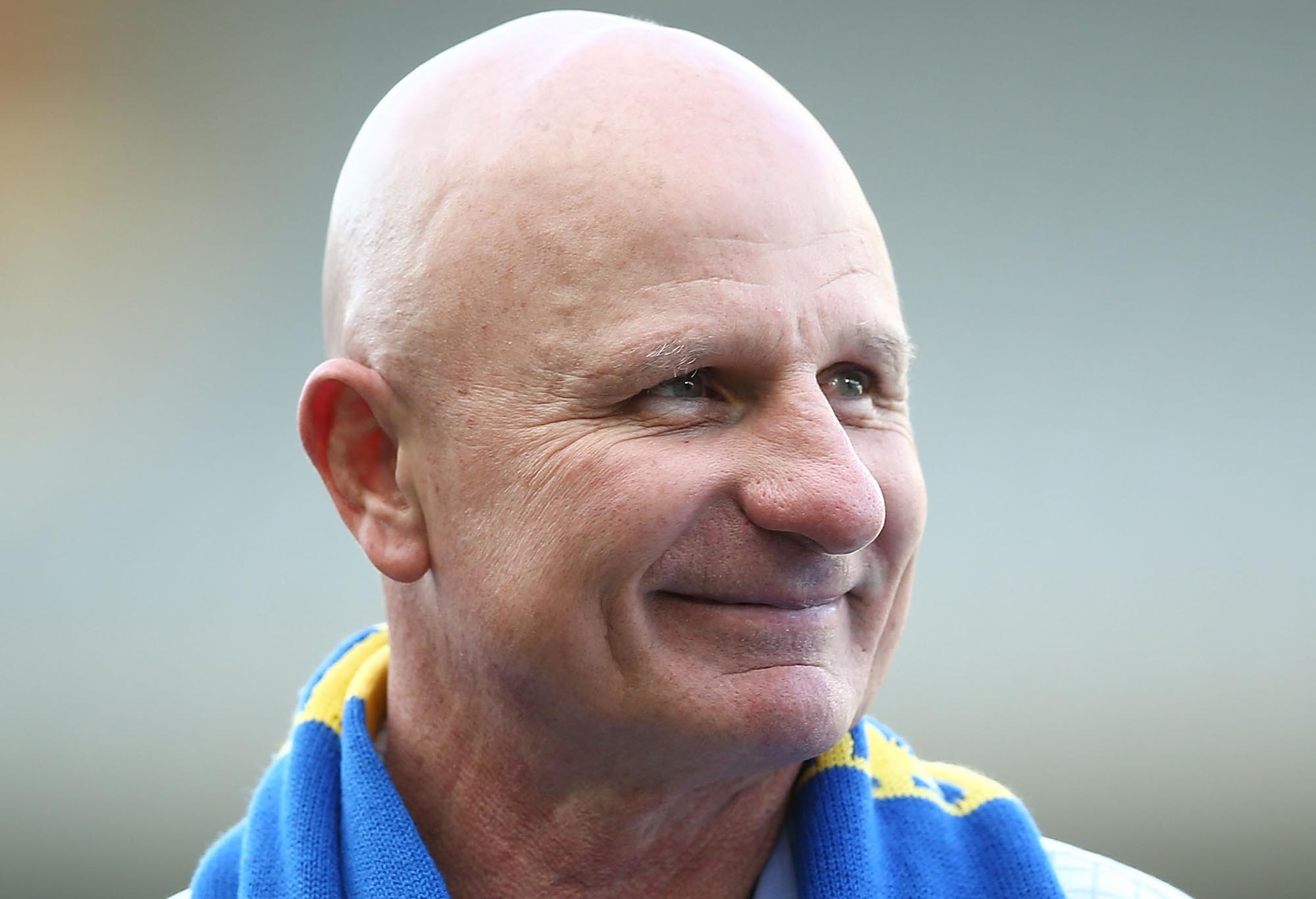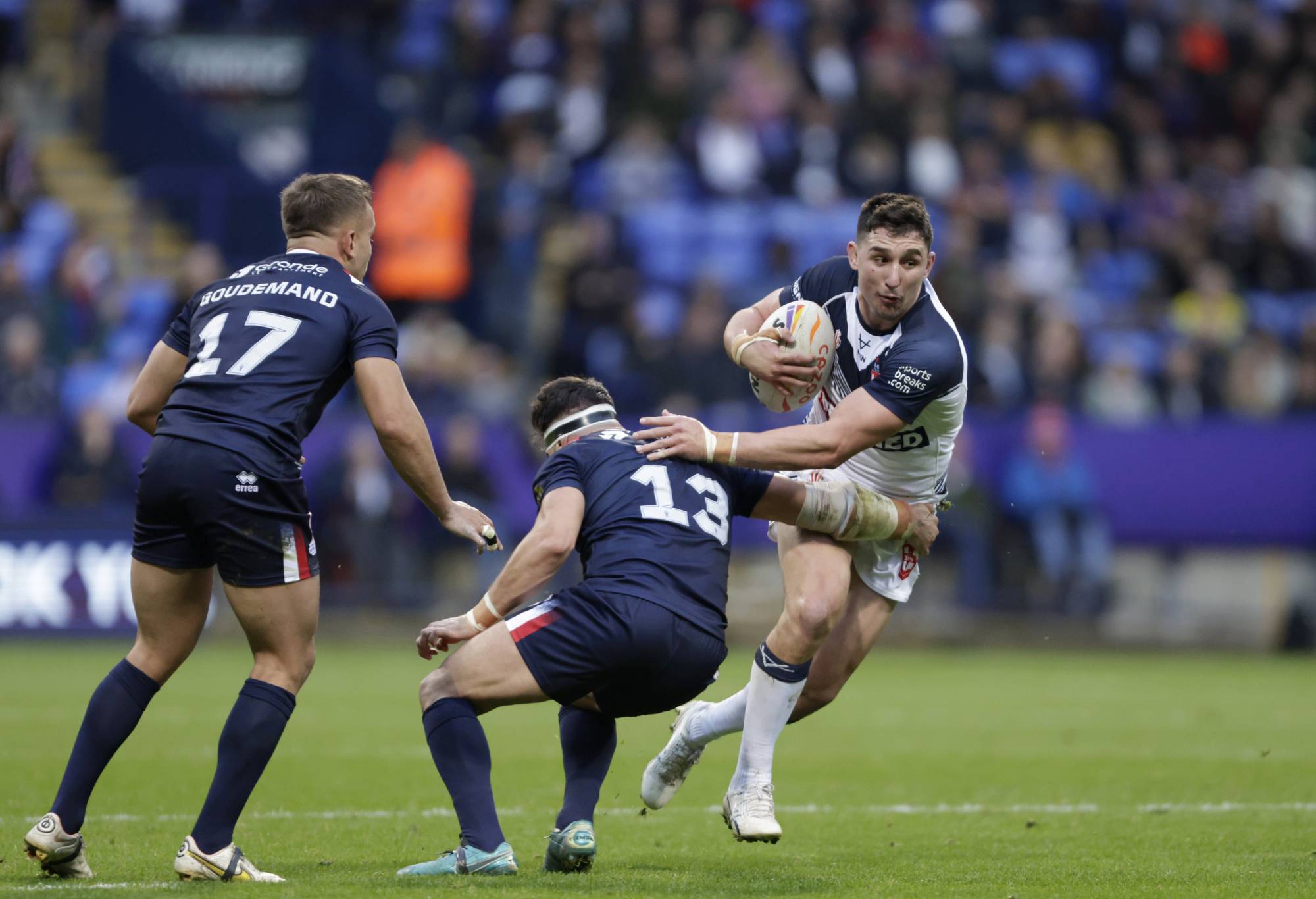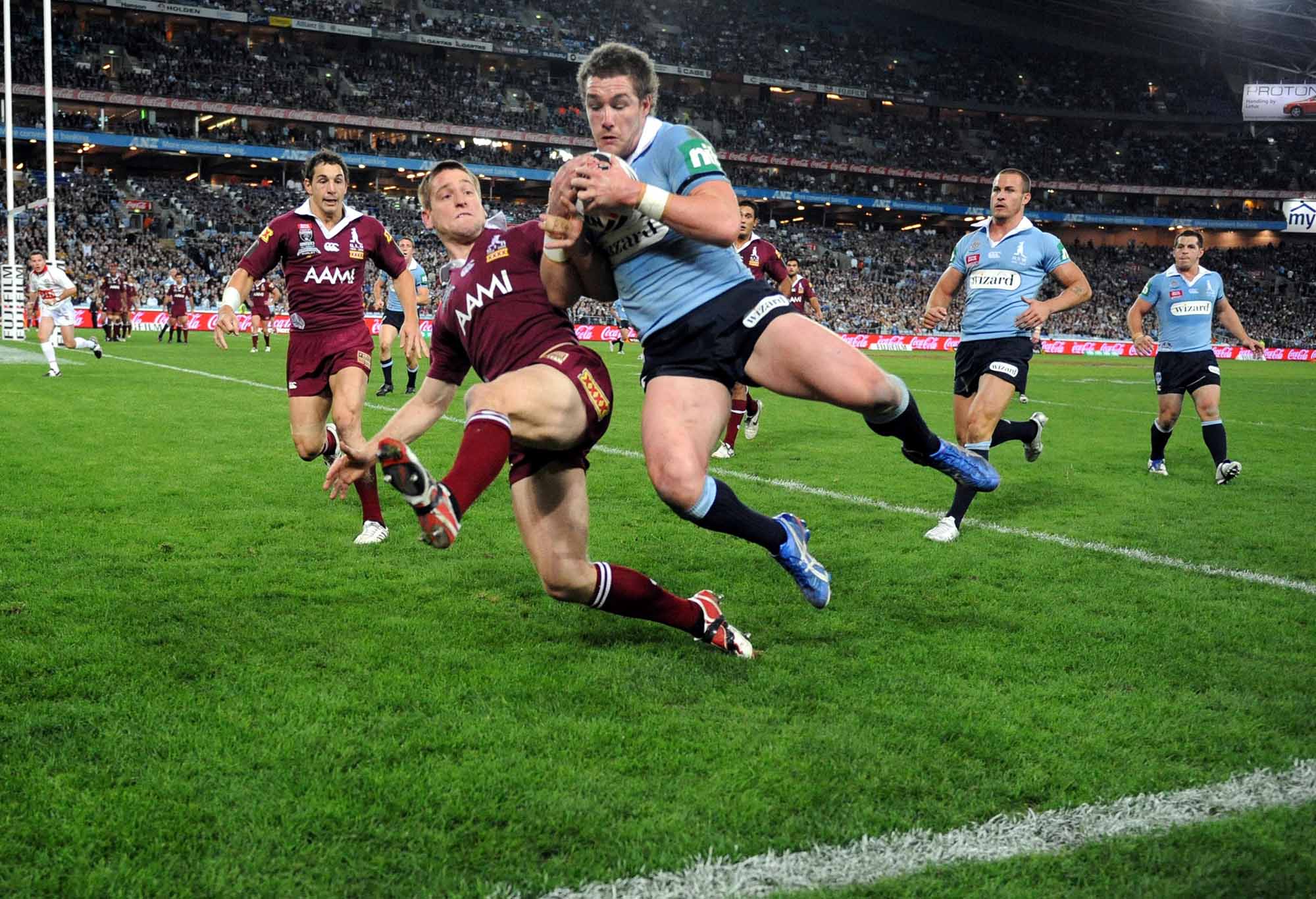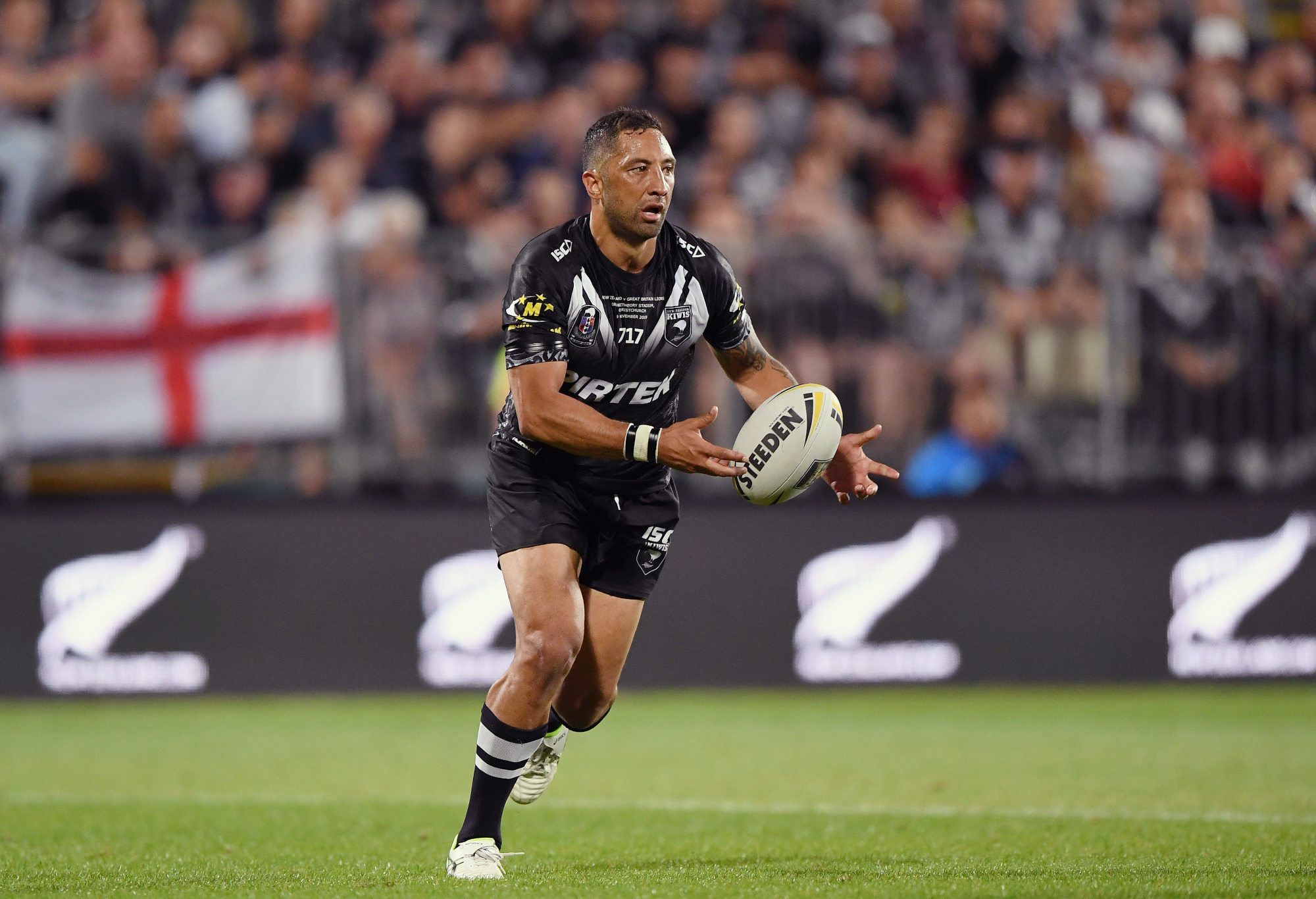The Bunker. Captain’s challenges. Six again. Golden point. HIAs.
Rugby league has changed over the years. It has evolved. It’s moved with the times to do its best to keep us entertained.
With many spruiking that the pinnacle of our beloved sport is State of Origin, but is it time to make yet another amendment to the playbook in another contentious area and let dual-eligible New Zealand and English players in on the fun?
Those from Tier 2 nations like Samoa, Tonga PNG and Fiji, have been allowed to play Origin under the current system. In doing so, it has allowed those nations to grow and gain experience, as well as create national superstars to help encourage younger players to represent their heritage while still being able to play Origin.
And that is all fine.
The winds of change have arrived once more, with questions surrounding whether Samoa will be classified as a Tier 1 nation after being one step away from toppling the Kangaroos in a World Cup final. Regardless of the result, this won’t happen anytime soon.
For those that don’t quite understand how the tiering works, it doesn’t just come down to how well your men’s team played in one tournament, it comes down to many things including funding.
But, while everyone still crowds around and voices their concerns that if they do become Tier 1 (they won’t) then some of those Polynesian stars won’t be able to play Origin again, the question remains – “what would happen if we just let everyone play?”
Like that little girl in the Old El Paso ad says, “why not have both?”
And don’t start with the “it’s State of Origin – meaning the state where you came from”, otherwise be prepared for arguments about Peter Sterling being born in Toowoomba, Greg Inglis being born in Kempsey, and James Tamou being born in New Zealand. I have Denis Carnahan’s number and I am not afraid to use it.

(Photo by Mark Metcalfe/Getty Images)
Surely we can all agree that State of Origin isn’t quite the same as it used to be. Not that it isn’t amazing – I’m like a kid at Christmas counting down the sleeps until kick-off. But the dynamics of our great game have changed so much, is it really still a problem which national jersey a player pulls on when being selected for a state one?
NSW coach Brad Fittler believes a player like Victor Radley, who was born in NSW and grew up in the state, should be allowed to play for the Blues and then represent England to honour his father, as he’s done at the World Cup.
But under current rules, he had to choose one or the other.

(Photo by Richard Sellers/PA Images via Getty Images)
Maroons star Valentine Holmes is another example – he has a New Zealand father so if he wanted to play for the Kiwis while also remaining with Queensland at Origin level, he could, if Fittler gets his way.
Earlier this year, NRL legend Cameron Smith said on his SEN 1170 radio show The Captain’s Run that the game needed ‘a black and white rule where everybody is clear who is eligible for who.’
“If you want to play State of Origin and represent Queensland or NSW which is a state of Australia, then you have to be available for the Kangaroos,” said Smith.
CLICK HERE for a seven-day free trial to watch the RLWC on KAYO
“We are going to find ourselves in more of these situations (with) so many more cultures being involved in our game.
“I’m just thinking long term that if the floodgates open…there is a really strong possibility that you will see maybe half of the players playing in Origin eligible to play for the Kangaroos.”
But does that really still matter? How many people still see State of Origin as an audition for an Australian jersey? The old City vs Country match was always viewed as the tryouts for Origin, and our three-game spectacle doesn’t seem to have missed a beat since that concept was thrown in the bin.
And what is so wrong with the Kangaroos not dominating the world rankings, and NRL fans getting to see the best players run out in Blue or Maroon?
Former Queensland great Brent Tate disagrees.
“If you’re able to play well during an Origin and then you have a good back end of the season, I think it does hold you in good stead to then play for the Kangaroos,” Tate, who played 23 Origins for the Maroons, told The Roar.

(AAP Image/Dean Lewins)
“I wouldn’t say it’s an out-and-out trial for the Australian team, but I think it’s certainly something that’s remembered by the selectors when it comes time to pick the team, that’s for sure.”
Tate, who also wore the green and gold 25 times, believes that if more nations become eligible to play Origin, the more it will diminish the meaning of it.
“It would 100 percent detract, and I’m sure if you ask NSW players, they will say the same about their jerseys,” said Tate
“Origin is built on pride and passion, and actually having a connection to the jersey. I think it definitely would pull away from it.
“I know when playing for Queensland, when you get to pull that jersey on, you feel something. If you don’t feel something well, then I don’t think you’ll ever be in the jersey for long.”

Benji Marshall. (Photo by Kai Schwoerer/Getty Images)
While many will agree with Tate and the allegiance to the state jersey, there is an abundance of footy talent who once pulled on an Australian jersey and were then denied a chance to play Origin. Jason Taumalolo, Benji Marshall, Kieran Foran, Tony Puletua, Nathan Cayless and Martin Taupau all represented the Australian Schoolboys side early on in their careers but became ineligible to play for their state after picking their heritage over their adopted homelands.
Anyone of those guys in the Origin arena would have been spectacular.
Parramatta Eels star and Jillaroos forward Kennedy Cherrington has both an Australian and Maori background but elected to wear the green and gold at the Rugby League World Cup. That didn’t stop her from showing emotion and singing both anthems when the Aussies faced off against the Kiwi Fens last week – because she feels she belongs to both. And that’s how it should be.
Tate believes the problem lies in the lack of international games.
“They just need to fix the international schedule up – if they can actually put things in place where these nations are playing a lot more then I think it takes away this argument,” said Tate.
“The international schedule needs to be looked at, I think people want more of it. Especially the developing nations like Samoa, the rise of those guys, I think they deserve to play more footy. And I don’t think you’d ever get any complaints from anyone pulling on the green and gold jersey either more often because it’s an honour to do that.
“So I think if they fix up the international schedule and find some more space to play those games a lot more then this (the Origin debate) doesn’t get raised as much.”
While what he is saying isn’t wrong, it doesn’t remove the issue of making more players eligible for Origin. They should be able to hold pride in their club jersey, show emotion in a state jersey, and then go on to wear a national jersey that isn’t green and gold.
It just doesn’t make sense why we can’t have our cake and eat it too. Here in Australia, we are blessed to have the best rugby league players in the world running around in our competition. And at the end of the day, if someone isn’t allowed to play Origin, what do we lose? Nothing. There will always be another to fill the spot.
But what would the game as a whole gain if we let them play? Everything.
































































































